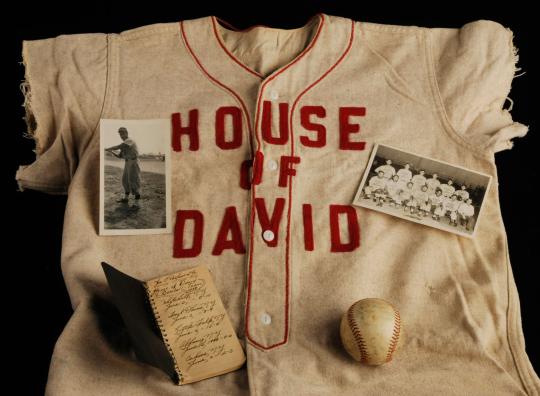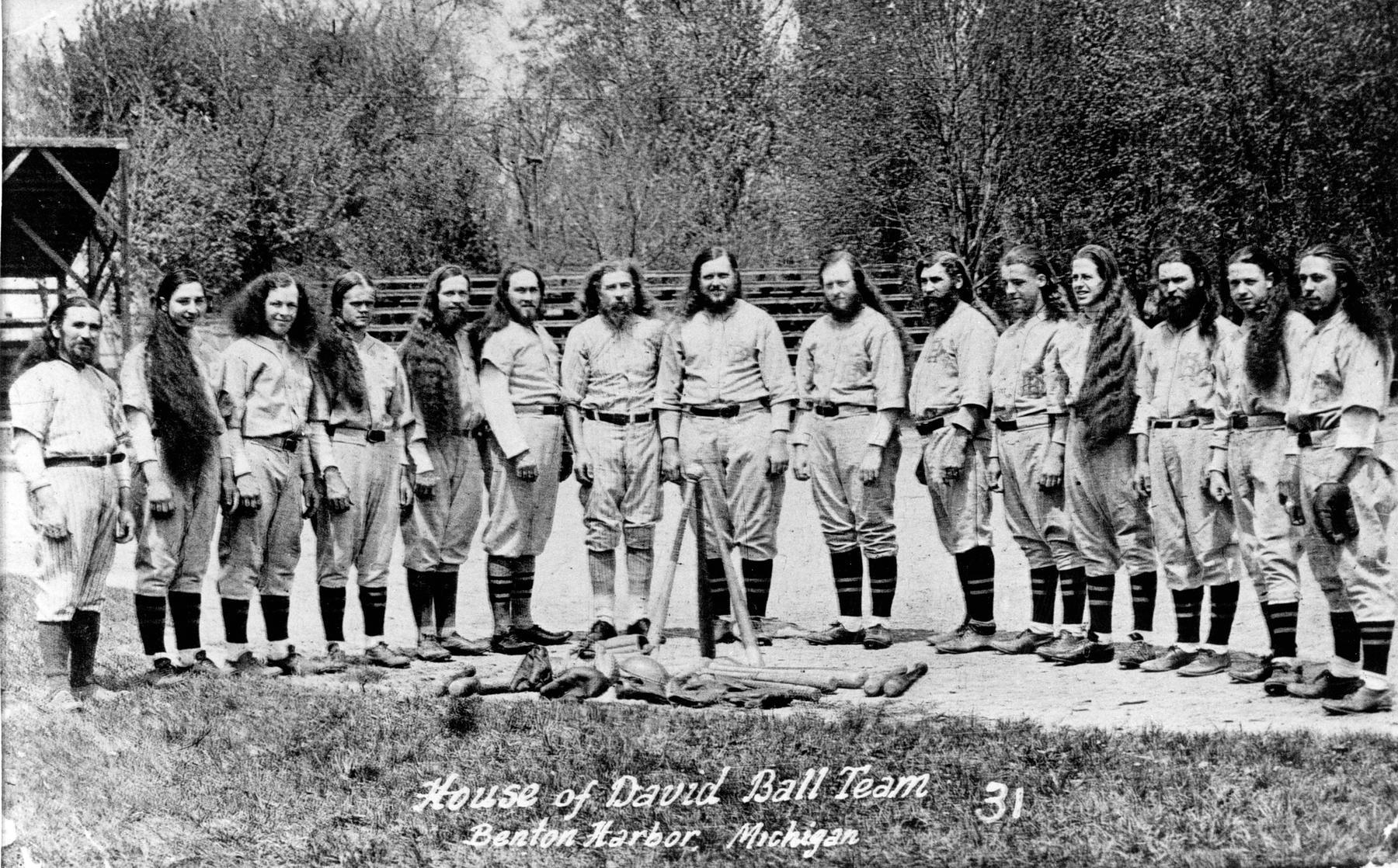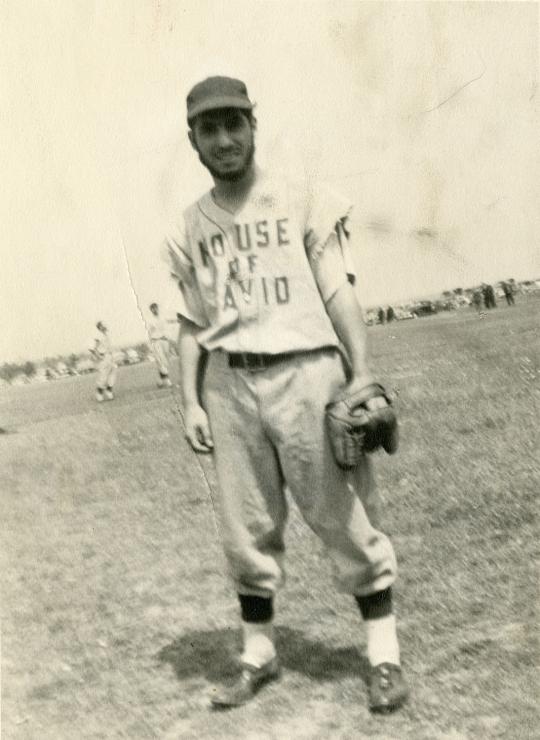Founded in 1903 as a religious community, the Israelite House of David was established for the purpose of reuniting the 12 lost tribes of Israel to await the Millennium.
But for many baseball historians and fans, the name House of David has become synonymous with baseball’s barnstorming heyday. And today, thanks to a donation to the National Baseball Hall of Fame and Museum, the House of David legacy is alive and well in Cooperstown.
Headquartered out of the small town of Benton Harbor, Mich., the House of David ran a number of successful business operations and also sponsored a variety of athletic programs. House of David founder Benjamin Purnell was an active sports enthusiast and encouraged his members to participate and, reflecting the nation as a whole, baseball was their preferred pastime.
The House of David began playing organized baseball by 1913 as a weekend activity drawing impressive crowds at their home field in Benton Harbor, and by 1920 they were a regular feature on the American barnstorming circuit. The baseball team served several functions, the two primary purposes being to raise money for the community, but also as a means of recruiting new members to the faith. The basic tenets of the House of David included physical labor, celibacy, refraining from haircuts and shaving, and a strict vegetarian diet. The athletic teams were seen as a way to develop both the physical and spiritual discipline required by the religion.
In addition to their primary men’s barnstorming team, the colony also sponsored a girl’s squad and a junior boys program.
Donning a variety of House of David uniforms, and playing with flowing locks of hair and unshaven faces, the team stood out among the many barnstorming operations and their reputation as an excellent baseball team was known throughout North America. Their unique physical appearance and a famed sleight-of-hand “pepper game” also helped to ensure large crowds wherever they traveled.
By the late 1920s the House of David began hiring professional players to further enhance their program, and included such luminaries as Grover Cleveland Alexander, Chief Bender and Satchel Paige. While not required to convert to the full faith, these contract players were asked to grow facial hair, or to at least wear a false beard.
There may have been one exemption to the no shaving rule, as the team signed 19-year-old Virne Beatrice Mitchell to a contract in 1933. Known as Jackie, and having earned some fame for striking out Babe Ruth and Lou Gehrig in an earlier exhibition contest, Mitchell became one of the first women (if not the first) to sign a professional baseball contract. Her salary was set at $3,000 per month, a significant sum in those days. This pay scale also serves to indicate the financial value the team held for the colony.
The quality of play was excellent, and the House of David’s schedule included major league, minor league and Negro Leagues games. The program would expand to include as many as three different teams. However, by the early-1930s, legal troubles and internal religious differences began to take their toll, and the colony split into several factions, each of whom continued to sponsor baseball teams. Although mainly consisting of contract players not associated with the religious colonies, the House of David teams would continue to barnstorm throughout North America until the mid-1950s. Then, like so many other baseball programs, they faded from national memory.



